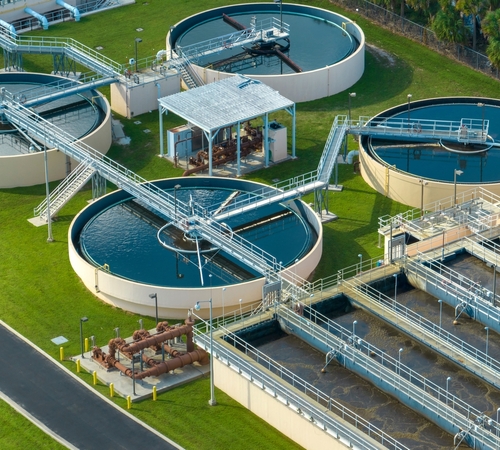
San Francisco Faces Significant Penalties and Improvement Costs Due to Aging Sewer System
August 20, 2024On May 1, 2024, the United States Environmental Protection Agency (EPA) and the state’s San Francisco Regional Water Quality Control Board (Regional Board) sued the City and County of San Francisco for violations of federal and state water quality laws stemming from operation of its sewer system. EPA and the Regional Board seek penalties and a court order requiring that San Francisco take actions to bring its sewer system into compliance with its permits.
San Francisco’s Wastewater Treatment System
San Francisco is one of the few communities in California with a municipal combined sewer system. This means that the system transports stormwater, sewage, and industrial and commercial wastewater through a single-pipe system for treatment. This system is regulated by two National Pollutant Discharge Elimination System (NPDES) permits: one for the Bayside System, which processes about 80% of San Francisco’s wastewater, and the other for the Oceanside System. These permits regulate discharges by establishing effluent limitations and requirements for reporting, public notification, operations, and maintenance of the combined sewer systems.
Regulatory Authority
The Complaint alleges violations under both the federal Clean Water Act and the state’s Porter-Cologne Water Quality Control Act (Porter-Cologne Act). The Clean Water Act prohibits the discharge of pollutants from any point source into waters of the United States, such as San Francisco Bay and its tributaries, except as authorized by NPDES permits. It also establishes the NPDES permit program to regulate the discharge of pollutants. In California, EPA has authorized the State Water Resources Control Board and nine Regional Boards to issue and ensure compliance with NPDES permits. The state’s Porter-Cologne Act similarly prohibits the discharge of pollutants from publicly owned treatment works, except as authorized by permits, and allows the state Regional Boards to set permit requirements, including for effluent limitations, monitoring, and record-keeping.
The Clean Water Act authorizes EPA to file a court action seeking up to $25,000 per day for each permit violation as well as for injunctive relief. Similarly, the Porter-Cologne Act authorizes the Regional Boards to seek penalties for violations of the Clean Water Act and NPDES permits. Penalties can be up to $25,000 per day of violation and, where there is a discharge, up to $25 per gallon discharged in excess of 1,000 gallons.
The Complaint
The Complaint alleges that San Francisco’s combined sewer system caused untreated sewage to discharge into the San Francisco Bay and Pacific Ocean in violation of the City’s NPDES permits. According to the Complaint, during periods of heavy rain, stormwater flows exceed the system’s total flow capacity and cause combined sewer overflows (CSOs). According to EPA and the Regional Board, since 2016 more than 1.8 billion gallons of untreated sewage have been released each year into the San Francisco Bay, its tributaries, and the Pacific Ocean. The Complaint also alleges that San Francisco failed to provide proper notice of these combined sewer overflows, did not follow operational and reporting requirements, did not adequately maintain or repair the system, and did not maintain adequate contingency or spill prevention plans.
EPA and the Regional Board seek monetary penalties and ask for a court order requiring that the City make system improvements that would bring it into compliance with its permits and water quality laws. While the Complaint does not identify penalties sought, EPA and the Regional Board could easily pursue millions of dollars in penalties alone.
Baykeeper Intervenes
Recently, nonprofit corporation San Francisco Baykeeper joined the lawsuit as an an “intervenor” under the Clean Water Act’s “citizen suit” provisions. According to its complaint, the organization investigated the combined sewer overflows and issued a notice of intent to take legal action against San Francisco and the San Francisco Public Utilities Commission. Baykeeper seeks penalties of about $66k per day of violation, a court order prohibiting future violations of the permits, and attorneys’ fees and costs.
Status of the Case
In June, the parties agreed to participate in private mediation to discuss resolution of the case. The case is on pause until December 31, 2024, the date by which the parties agreed to complete mediation.
Implications for Other Public Entities
Though San Francisco is one of only two California communities with combined sewer systems, the violations at issue in this case are relevant to public agencies that handle water treatment across the state. The State Water Resources Control Board and Regional Boards impose significant penalties for violations of water quality. Much of these enforcement efforts stem from NPDES permits. In Fiscal Year 2022-2023, for instance, over 40 percent of the Water Boards’ penalties, totaling over $6 million, came from the NPDES Wastewater program.
To better protect against these kinds of enforcement actions, public agencies should take steps to understand their existing obligations and potential liabilities. At minimum, agencies and entities responsible for water treatment and water supply should carefully review the requirements of their existing NPDES permits or state equivalents (known as waste discharge requirements). For water system operators, multiple permits and policies can come into play, such as individual NPDES permits and statewide general orders like the Sanitary Sewer System General Order. Given these complexities, technical or legal assistance may be helpful in completing this analysis. And when permits are up for renewal, public entities can evaluate whether any requirements should be modified, and if so, use the Regional Board’s permitting and hearing processes to advocate for appropriate permit modifications.
For more information on compliance with state and federal water quality laws contact Vaneeta Chintamaneni.